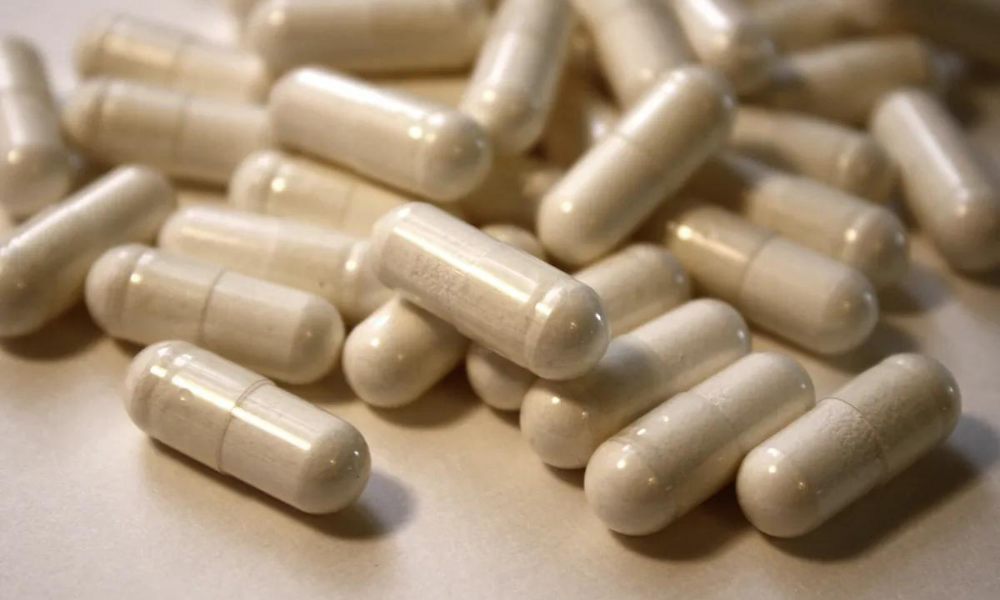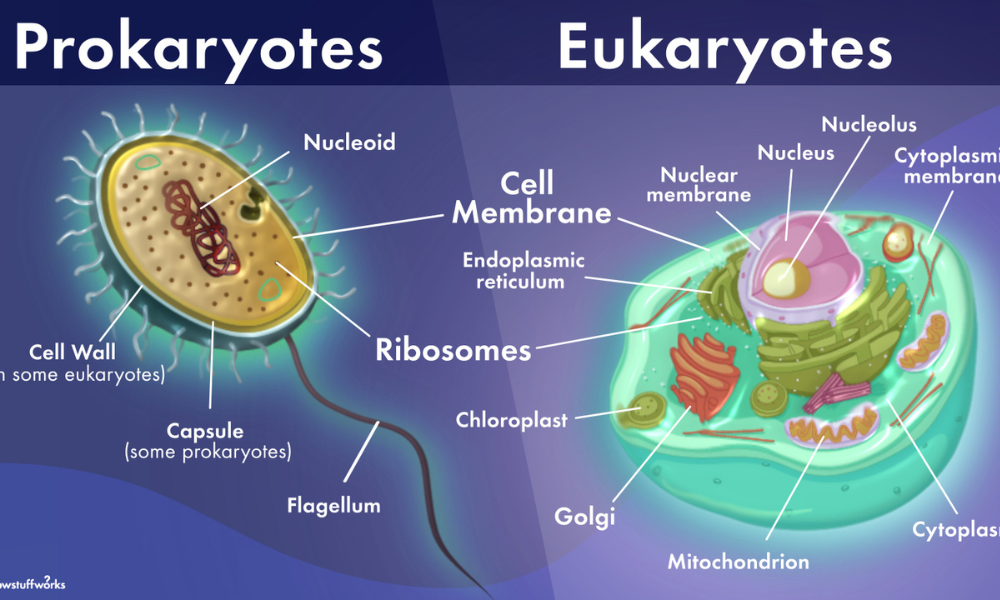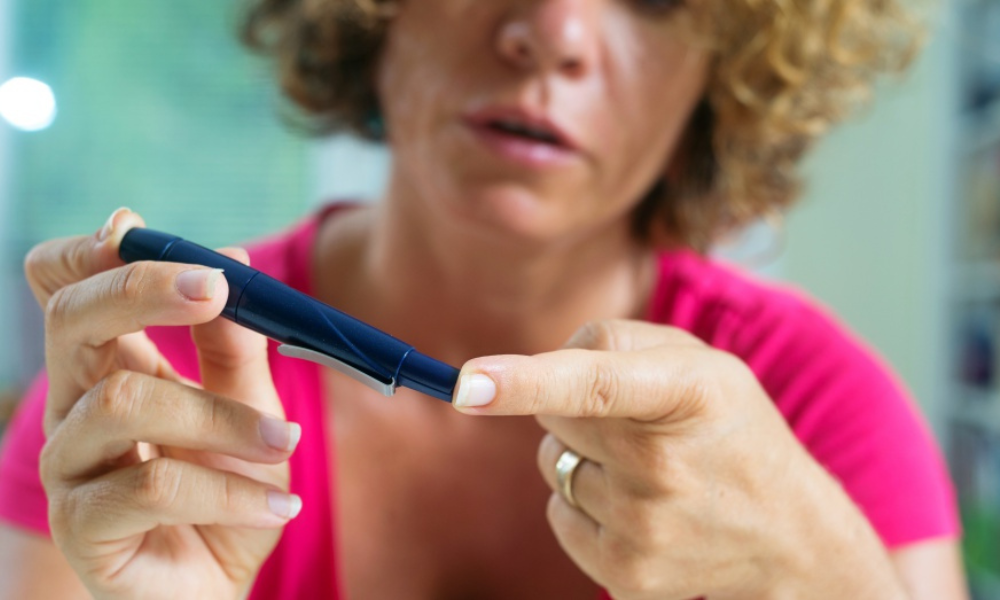Hormones are the invisible conductors orchestrating a delicate symphony within our bodies, influencing everything from mood and energy levels to reproductive health. For many women, hormonal imbalances can unleash a torrent of challenges, from polycystic ovary syndrome (PCOS) to anxiety and depression.

However, there is a game-changing supplement that is emerging as a powerful ally in the quest for hormonal harmony: inositol. In this article, we will delve into the fascinating world of female hormones and explore how inositol plays a pivotal role in restoring balance, offering hope and relief to those navigating hormone-related health issues. Prepare to unlock the secrets behind this remarkable compound and discover the transformative impact it can have on women's well-being.
What is Inositol?
Inositol is a small molecule structurally similar to glucose that plays a crucial role in various biological processes including cell signaling, fat metabolism, and insulin regulation. It is naturally present in foods like fruits, beans, grains and nuts.

The Influence of Inositol on Female Hormone Levels
Inositol exists in two primary forms, myo-inositol (MI) and D-chiro-inositol (DCI), both of which have demonstrated significant effects on female reproductive health. In particular, inositol has been found to play a crucial role in PCOS, a condition characterized by hormonal imbalance, insulin resistance, and ovarian dysfunction.
Inositol, also known as myo-inositol, D-chiro-inositol, or hexaphosphate (IP6), is a carbocyclic sugar that plays a critical role in the body's cellular growth. Found abundantly in the brain and other mammalian tissues, it mediates cell signaling2and acts as a structural component of cell membranes.
Understanding Inositol and Its Role in the Body
Inositol is an important compound involved in various cellular processes. It serves as the foundation for secondary messengers in eukaryotic cells, which are cells that contain a nucleus and other organelles like mitochondria, endoplasmic reticulum, and Golgi apparatus (which handles the packaging, sorting, and transport of proteins and lipids within a cell).
Eukaryotic cells are found in plants, animals, fungi, and protists and are larger and more complex than prokaryotic cells that lack a nucleus. The nucleus of a eukaryotic cell is surrounded by a membrane and contains genetic material in the form of chromosomes. Other organelles have different metabolic functions, such as energy production, protein synthesis, and waste disposal.

One notable role of inositol is its significance in insulin signaling pathways. Insulin is the hormone that allows glucose in the blood to enter cells. Inositol can greatly influence the action of insulin, making it crucial for metabolism and mood regulation.
In addition to its involvement in insulin signaling, inositol, as a type of sugar alcohol, also plays other important roles in the body. These include fat metabolism, hormone secretion, and insulin signal transduction. In the context of PCOS (polycystic ovary syndrome), inositol has shown to have a significant impact on improving insulin resistance, a common symptom in women with PCOS.
Inositol and Insulin Sensitivity
Inositol, a compound known for its impact on hormonal balance, also plays a significant role in glucose metabolism and insulin sensitivity. These issues are closely linked with PCOS, a condition that affects many women.
One common symptom of PCOS is insulin resistance, where the body does not respond properly to insulin, resulting in high blood sugar levels. However, evidence suggests that both myo-inositol (MI) and d-chiro inositol (DCI) can improve the body's response to insulin and alleviate some PCOS symptoms.
Insulin resistance is a condition where the body's cells become resistant to the effects of insulin, which regulates the movement of sugar into cells. This resistance is primarily observed in the liver, muscle, and adipose tissue. It means that even with a certain concentration of insulin, the expected biological effect is not achieved.
Insulin resistance is often seen as a precursor to metabolic syndrome and type 2 diabetes. While the exact causes of insulin resistance are not fully understood, factors such as obesity, family history of type 2 diabetes, and an unhealthy lifestyle may contribute to its development.
Multiple studies have found a positive link between inositol supplementation and improved insulin sensitivity. For example, a study published in the European Review for Medical and Pharmacological Sciences showed that inositol supplementation could improve insulin resistance in pregnant women at risk of gestational diabetes.
Inositol and Polycystic Ovary Syndrome
Polycystic Ovarian Syndrome (PCOS) is a common hormonal disorder in women that often leads to infertility. It is characterized by irregular periods, excess male hormones, and the presence of polycystic ovaries. Inositol, specifically myo-inositol and D-chiro-inositol, has shown promise in managing PCOS symptoms.

Inositol helps the body use insulin more efficiently, reducing the production of testosterone by the ovaries and restoring balance to female hormones. It also improves fertility by enhancing egg quality and blood flow to the uterus, reducing the risk of miscarriage.
Research supports the use of inositol supplementation, particularly the combination of myo-inositol and D-chiro-inositol, to normalize hormone levels and alleviate PCOS symptoms. Inositol plays a crucial role in follicle-stimulating hormone signaling, influencing ovulation and menstrual cycles.
Additionally, studies suggest that inositol not only restores hormone levels but also improves ovarian function. It promotes the recruitment of dominant follicles and proper oocyte growth, important factors for fertility.
In conjunction with inositol supplementation, making lifestyle modifications can effectively manage PCOS symptoms. Regular physical activity, a balanced diet focused on fruits, vegetables, lean proteins, and whole grains, and stress management techniques like yoga or mindfulness meditation are recommended.
The Benefits of D-chiro-inositol for Women with Metabolic Syndrome
Metabolic syndrome is a group of conditions that includes high blood pressure, high blood sugar, excess body fat around the waist, and abnormal cholesterol or triglyceride levels. These conditions increase the risk of heart disease, stroke, and type 2 diabetes. Recent research has uncovered potential benefits of DCI for women with metabolic syndrome.
DCI has been found to improve insulin action and reduce insulin resistance, which are important factors in managing metabolic syndrome. Additionally, it seems to restore normal hormone levels in various clinical disorders. However, it is important to carefully evaluate the dosage and duration of DCI treatment, as too much DCI can ironically worsen egg quality and ovarian function.
The Therapeutic Potential of D-Chiro-Inositol for Women with Metabolic Syndrome
Did you know that approximately 25% of adults worldwide are affected by a serious health condition called metabolic syndrome? This condition is a combination of several metabolic factors, that increase the risk of heart disease, stroke, and type 2 diabetes. It's characterized by symptoms like a large waistline, high blood pressure, high triglyceride levels, low HDL cholesterol levels, and high fasting blood sugar.
However, there's some promising news. Recent research suggests that a naturally occurring molecule in the human body called D-Chiro-Inositol may have therapeutic benefits for women with metabolic syndrome. This could be a game-changer in managing this complex health challenge.
D-Chiro-Inositol: A Promising Therapeutic Agent
D-Chiro-Inositol is a member of a family of related substances often referred to as "inositols." It plays a pivotal role in insulin signaling – a crucial process for maintaining blood sugar levels. In addition, it has been found to have insulin-sensitizing effects, making it potentially beneficial for managing the symptoms of metabolic syndrome.

Improved Glucose and Lipid Metabolism
One of the primary benefits of D-Chiro-Inositol is its ability to improve glucose and lipid metabolism. Studies have shown that supplementation with D-Chiro-Inositol can significantly decrease serum insulin levels and systolic blood pressure in women with metabolic syndrome, thus improving their metabolic profile.
Reduced Inflammation
Chronic inflammation is often present in individuals with metabolic syndrome. D-Chiro-Inositol has anti-inflammatory properties which could help manage this aspect of the condition.
Hormonal Balance
D-Chiro-Inositol also plays a vital role in hormone regulation, including insulin, the hormone responsible for regulating blood sugar levels. Therefore, supplementing with D-Chiro-Inositol may help restore hormonal balance and improve insulin sensitivity.
Real-Life Stories: The Efficacy of D-Chiro-Inositol
Many women with metabolic syndrome have reported significant improvements in their symptoms after incorporating D-Chiro-Inositol into their wellness routines. For instance, some have seen their blood pressure stabilize, while others have experienced weight loss and reduced waist circumference - both key indicators of improved metabolic health.

D-Chiro-Inositol offers a promising natural approach to managing the symptoms of metabolic syndrome. By improving glucose and lipid metabolism, reducing inflammation, and promoting hormonal balance, this supplement can play a vital role in supporting overall wellness in women diagnosed with this condition. However, it is crucial to consult with a healthcare professional before starting any new supplement routine to ensure it is safe and appropriate for your individual health needs.
Dosage and Side Effects
The recommended dosage of inositol varies depending on the individual’s health status, age, and other factors. However, most research suggests a daily dosage of 200-4000 mg for adults. Side effects are rare but can include nausea, fatigue, headache, dizziness, and stomach discomfort. Always consult with a healthcare provider before starting any new supplement regimen.
The recommended dosage of inositol varies depending on the purpose of supplementation. For general hormone balance, a typical dosage ranges from 2 to 4 grams per day. However, for PCOS management, higher doses of up to 4 to 6 grams per day may be recommended. It is crucial to consult with a healthcare professional before starting any supplementation regimen to ensure individual needs are met.
In general, inositol is considered safe with minimal side effects. However, some individuals may experience mild gastrointestinal discomfort, such as bloating or diarrhea, at higher doses. It is essential to start with a lower dosage and gradually increase it under medical supervision
Incorporating Inositol into Your Routine
If you're looking to increase your inositol intake, there are a few simple ways to do so. Incorporating inositol-rich foods into your meals is one option. These foods include cantaloupe, citrus fruits, whole grain bread, and brown rice. Another option is to supplement with inositol, which is widely available and convenient.
Dietary Sources of Inositol:
While supplements are an option, inositol can also be found naturally in a variety of foods. Citrus fruits, beans, whole grains, nuts, seeds, and vegetables like broccoli and cabbage are all good sources of inositol. By adding these foods to your diet, you can naturally increase your inositol intake and support hormone health.

Choosing the Right Supplement:
If you do decide to supplement with inositol, it's important to choose a high-quality product from a reputable manufacturer. Look for a product like [product name], which contains pure inositol derived from natural sources.
When selecting a supplement, keep in mind that there are many brands available. Take the time to research and find one that meets your specific needs and preferences. Consulting with a healthcare professional or registered dietitian can provide valuable guidance in making the right choice.
Maintaining a Balanced Approach:
While inositol may have benefits for insulin sensitivity, it's important to remember that it should not be used as a standalone treatment for conditions related to insulin resistance. Remember to prioritize a balanced diet, regular physical activity, and maintaining a healthy weight to effectively manage insulin levels and overall health.
Inositol and Your Homones FAQ's
If you still remain curious about the potential benefits of inositol, you're not alone.
Inositol, a naturally occurring compound, has been gaining attention for its potential impact on hormonal balance, particularly in women. To help you better understand this connection, we have compiled a list of frequently asked questions and their answers. Read on to learn more about the relationship between inositol and your hormones.
What is inositol?
Inositol is a type of sugar alcohol that is naturally present in various foods. It is also produced by the human body. Inositol plays a crucial role in several physiological processes, including hormone regulation.
How does inositol affect hormone levels?
Inositol is involved in the signaling pathways that regulate hormone production and release. It can help improve insulin sensitivity, modulate serotonin receptors, and impact the activity of certain reproductive hormones, such as estrogen and progesterone.
Can inositol help with polycystic ovary syndrome (PCOS)?
Research suggests that inositol supplementation may be beneficial for women with PCOS. It may help improve insulin sensitivity, reduce testosterone levels, regulate menstrual cycles, and promote ovulation.
Is inositol safe to use?
Inositol is generally considered safe for most individuals when taken in appropriate doses. However, it's always advisable to consult with a healthcare professional before starting any new supplement, especially if you have pre-existing medical conditions or are taking medications.
What are the dietary sources of inositol?
Inositol can be found in various foods, including fruits, vegetables, nuts, and whole grains. Some good dietary sources include citrus fruits, beans, peas, brown rice, and nuts like almonds and peanuts.
How much inositol should I take?
The recommended dosage of inositol varies depending on the specific health condition being addressed. It's important to follow the guidance of a healthcare professional or refer to the product label for appropriate dosing instructions.
Are there any side effects of inositol supplementation?
Inositol is generally well-tolerated, and most people do not experience any significant side effects. However, some individuals may experience mild digestive upset, such as stomach discomfort or diarrhea, when taking high doses.
Can inositol help with symptoms of anxiety and depression?
Inositol has shown promising results in studies investigating its role in alleviating symptoms of anxiety and depression. It may help modulate the neurotransmitters involved in mood regulation, such as serotonin.
Does inositol impact fertility?
Inositol supplementation may have a positive impact on fertility by improving hormonal balance and menstrual cycle regularity. Inositol for PCOS may also help enhance ovulation, increasing the chances of successful conception.
Is inositol suitable for men as well?
While most of the research on inositol and hormonal balance has focused on women, inositol can also be beneficial for men. It may support healthy sperm function, improve insulin sensitivity, and contribute to overall reproductive health.
Remember, it's always crucial to consult with a healthcare professional before starting any new supplement or making significant changes to your diet or medication regimen.
Conclusion
Inositol has emerged as a powerful ally in the journey towards hormonal balance and overall well-being for women.
This incredible compound has gained recognition in the world of women's health for its significant effects on female hormones.
From addressing hormonal imbalances and relieving PCOS symptoms to promoting fertility, inositol offers a comprehensive solution to managing hormonal issues. Backed by scientific studies proving its effectiveness, it has become a valuable supplement for women looking to achieve hormone balance and enhance their reproductive health.
By understanding the role of myo-inositol and d-chiro inositol in the body, their impact on female hormones, recommended dosage, potential side effects, dietary sources, and available products, women can make well-informed decisions about incorporating inositol supplements into their wellness routine.
However, it is important to note that while inositol holds promise, it is not a substitute for professional medical advice. Each person's body is unique, and consulting with a healthcare professional is vital before introducing inositol into a wellness regimen. They can provide personalized guidance based on specific health conditions, medications, and individual needs.
Remember, prioritizing your health and seeking professional guidance will lead you down the path to optimal hormone health and overall wellness.
References
The Influence of Inositol on Female Hormone Levels
Healthline - "Inositol: Benefits, Side Effects and Dosage" https://www.healthline.com/nutrition/inositol
ScienceDirect - "Inositol - an overview" https://www.sciencedirect.com/topics/neuroscience/inositol
Understanding Inositol and Its Role in the Body
National Library of Medicine - "Role of Inositols and Inositol Phosphates in Energy Metabolism" https://www.ncbi.nlm.nih.gov/pmc/articles/PMC7663797/
Theralogix - "Health Benefits of Inositol" https://blog.theralogix.com/inositol-health-benefits/
Basic and Clinical Andrology - "D-chiro-inositol, an aromatase down-modulator, increases androgens and reduces estrogens in male volunteers: a pilot study" https://bacandrology.biomedcentral.com/articles/10.1186/s12610-021-00131-x
Other Sources:
Journal of Thyroid Research - "Combined Treatment with Myo-Inositol and Selenium Ensures Euthyroidism in Subclinical Hypothyroidism Patients with Autoimmune Thyroiditis" https://www.hindawi.com/journals/jtr/2013/424163/
National Library of Medicine - "d-chiro-inositol Induces Ovulation in Non-Polycystic Ovary Syndrome (PCOS), Non-Insulin-Resistant Young Women, Likely by Modulating Aromatase Expression: A Report of 2 Cases" https://www.ncbi.nlm.nih.gov/pmc/articles/PMC7663797/
European Review for Medical and Pharmacological Sciences - "The use of D-chiro-Inositol in clinical practice" https://www.researchgate.net/profile/Vittorio-Unfer/publication/348516542_The_use_of_D-chiro-Inositol_in_clinical_practice/links/6001b5f4299bf140889b4ef7/The-use-of-D-chiro-Inositol-in-clinical-practice.pdf








